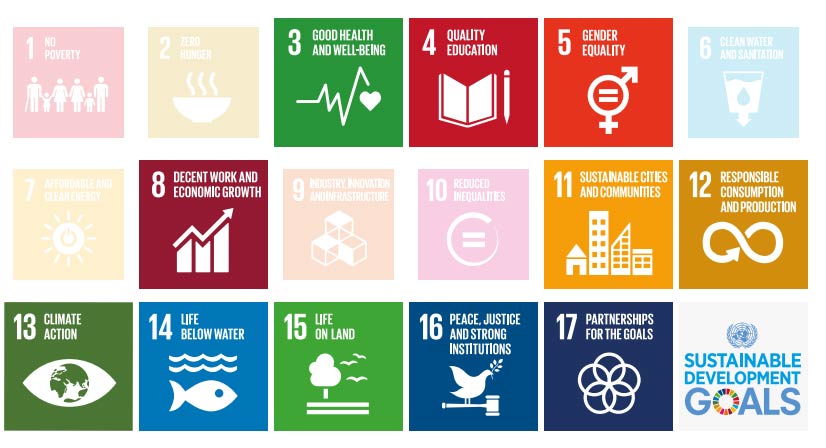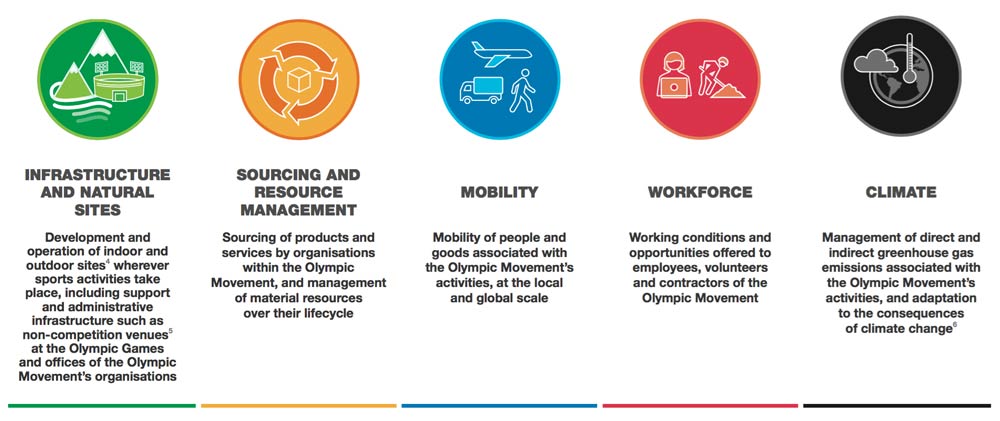April 13, 2018

Sustainability is one of the three pillars of Olympic Agenda 2020 alongside credibility and youth. In line with its recommendations, the IOC has developed a Sustainability Strategy. Based on the responsibility of the IOC as an organization, as the owner of the Olympic Games, and as the leader of the Olympic Movement, it focuses on infrastructure and natural sites, sourcing and resource management, mobility, workforce, and climate.
The IOC Sustainability Strategy supports IOC's commitment to contribute to the United Nations 2030 Agenda for Sustainable Development
The world faces significant challenges across a wide spectrum of social, environmental and economic matters. Major issues such as social injustice, economic inequality and climate change are increasingly occupying people around the world. The sporting community is not immune to the impacts of these issues. We believe the Olympic Movement has both an opportunity and a duty to contribute actively to global sustainability in line with our vision: “Building a better world through sport”.
That is why it was pivotal for IOC when in September 2015 the United Nations (UN) General Assembly confirmed the important role that sport plays in supporting the UN 2030 Agenda for Sustainable Development and the 17 Sustainable Development Goals (SDGs).

The 17 SDGs for 2030 provide a common framework for organisations to explain how they plan to contribute to sustainable development and to tackle the key global sustainability challenges. These SDGs include ending poverty, combatting climate change, fighting injustice and inequality, and many other aspirations for a better, more sustainable world.
The core missions of the Olympic Movement, including social development through sport, are already closely aligned with a number of SDGs, notably in the fields of health and well-being (SDG #3), quality education (SDG #4), gender equality (SDG #5), peace, justice and strong institutions (SDG #16) and partnerships for sustainability (SDG #17). By further embedding sustainability in our activities, we believe we could reinforce the IOC’s contribution to these SDGs while contributing to several other SDGs.

"Sport is also an important enabler of sustainable development. We recognize the growing contribution of sport to the realization of development and peace in its promotion of tolerance and respect and the contributions it makes to the empowerment of women and of young people, individuals and communities as well as to health, education and social Key SDGs to which the IOC aims to contribute. inclusion objectives."
UN 2030 Agenda for Sustainable Development, Paragraph 37
Five sustainability focus areas
The five focus areas reflect aspects of the IOC’s activities that have the most significant interaction with sustainability. They have also been selected by considering today’s key sustainability challenges and the manner in which the IOC and its stakeholders believe the IOC can most effectively contribute. The five focus areas are strongly inter-related and should be considered as a whole.

Would you like to learn more?




